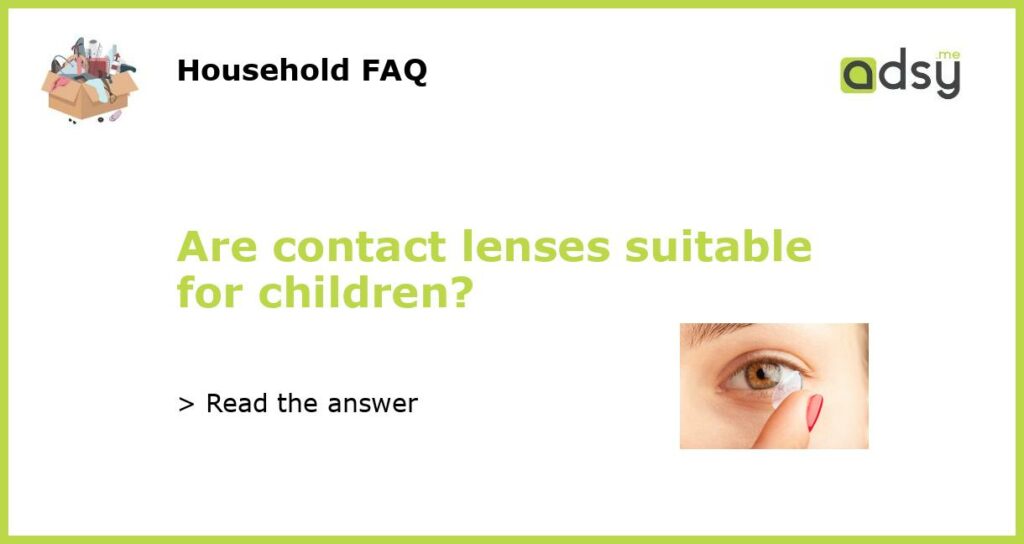What Are Contact Lenses?
Contact lenses are small, thin discs made of various materials, such as silicone hydrogel or soft plastic. They are placed directly on the eye’s front surface, acting as an artificial lens to correct vision problems. Traditionally used by adults, contact lenses have gained popularity among children in recent years as well.
Are Contact Lenses Safe for Children?
While contact lenses can be safe and effective for children, it is crucial to consider certain factors before choosing this vision correction option for your child. First and foremost, it is essential to consult an eye care professional, such as an optometrist, to determine whether your child is a suitable candidate for contact lenses.
Factors to Consider
There are several factors to consider when deciding if contact lenses are suitable for your child:
- Age: Children as young as 8 years old can be considered for contact lenses, although it ultimately depends on their maturity, level of responsibility, and ability to follow instructions.
- Vision prescription: Children with certain eye conditions, such as high astigmatism or corneal irregularities, may not be suitable candidates for contact lenses.
- Motivation and willingness: Children must be motivated and willing to wear contact lenses. It requires proper hygiene practices and responsible lens care.
- Parental involvement: Parents must be actively involved in the contact lens journey of their child. They need to ensure proper lens hygiene, follow-up appointments, and regular replacement of lenses.
- Activities: If your child participates in sports or other activities where glasses may be inconvenient or pose a safety risk, contact lenses may be a suitable option.
Advantages of Contact Lenses for Children
There are several advantages to considering contact lenses for children:
- Improved vision: Contact lenses provide a wider field of vision compared to glasses, allowing children to have better peripheral vision.
- Freedom from glasses: Many children feel self-conscious or restricted while wearing glasses. Contact lenses can give them the freedom to participate in activities without the burden of glasses.
- Corrected visual development: In certain cases, contact lenses may be a better option for correcting vision problems in children, aiding in their visual development and preventing further deterioration.
- Increased confidence: Children often feel more confident and comfortable without glasses, which can positively impact their self-esteem.
Taking Care of Contact Lenses for Children
Proper care and maintenance of contact lenses are essential to ensure their safety and effectiveness. Here are some tips for taking care of contact lenses for children:
- Teach your child proper handwashing techniques before handling contact lenses.
- Ensure your child understands and follows the cleaning and disinfecting instructions provided by their eye care professional.
- Supervise your child’s lens cleaning routine to ensure they are following the proper steps.
- Regularly replace contact lens cases and solutions to prevent contamination.
- Ensure your child attends all follow-up appointments with their eye care professional.
By considering the factors mentioned above and ensuring proper care, contact lenses can be a safe and effective option for vision correction in children. It is crucial to consult an eye care professional to determine the suitability of contact lenses for your child.






